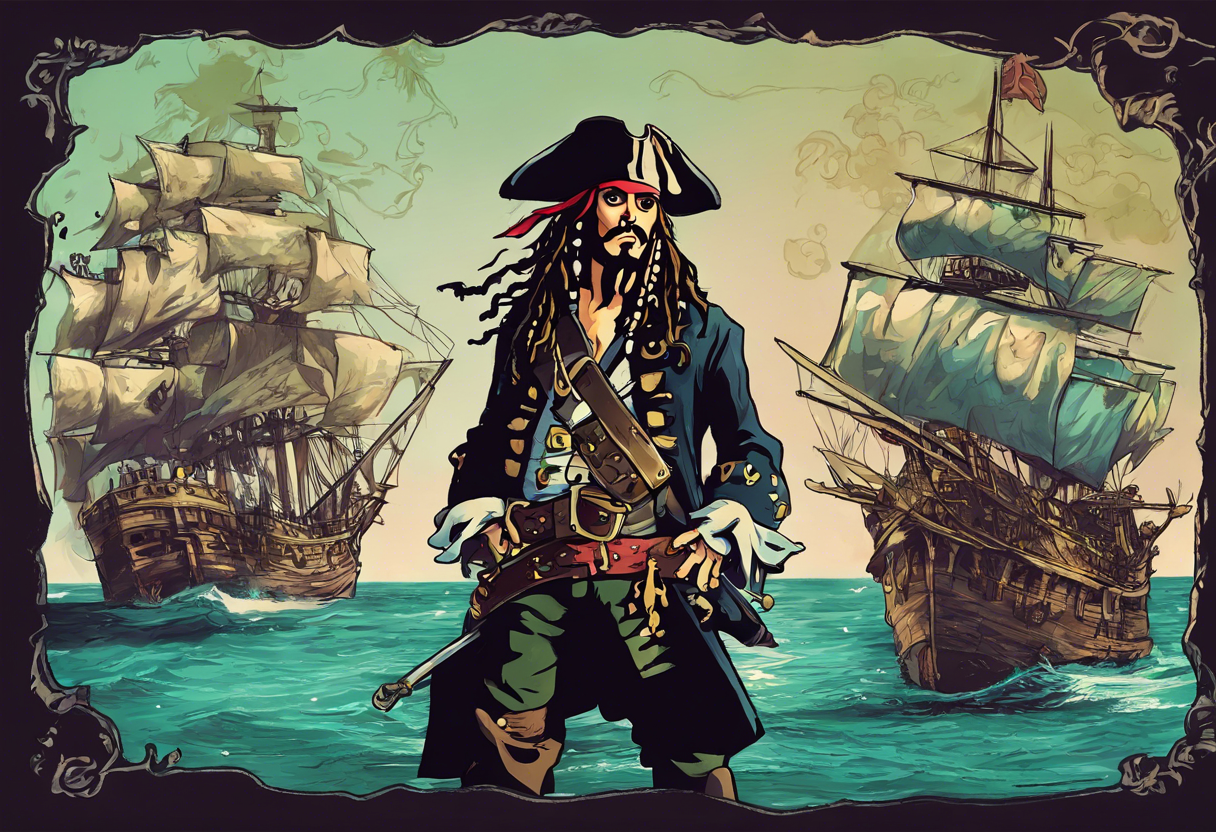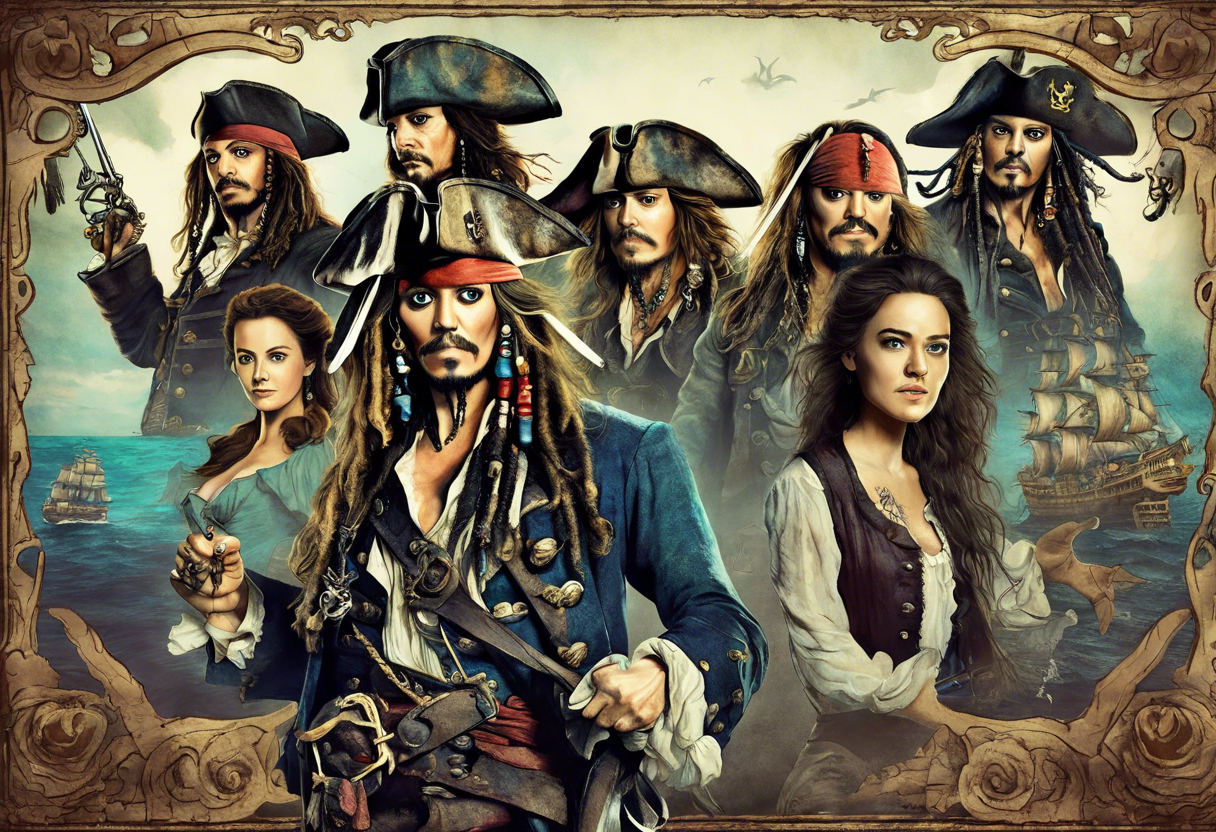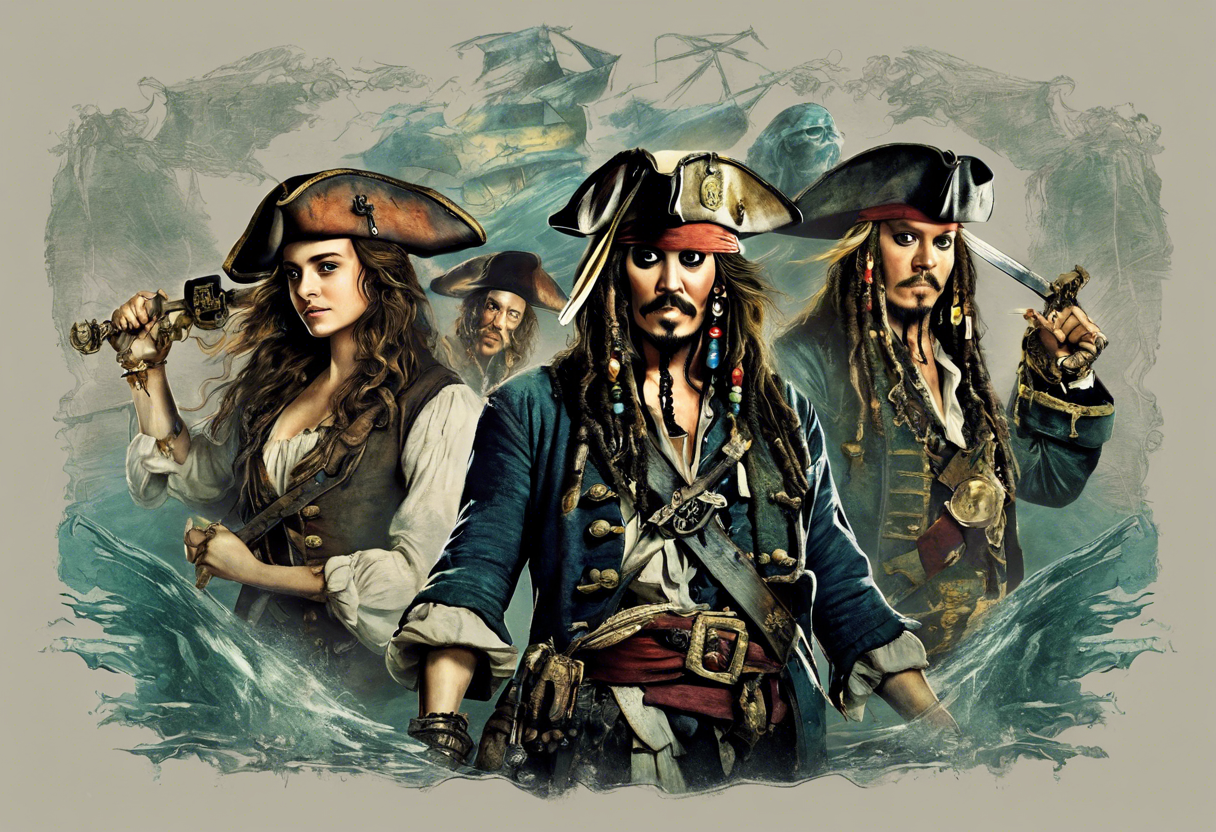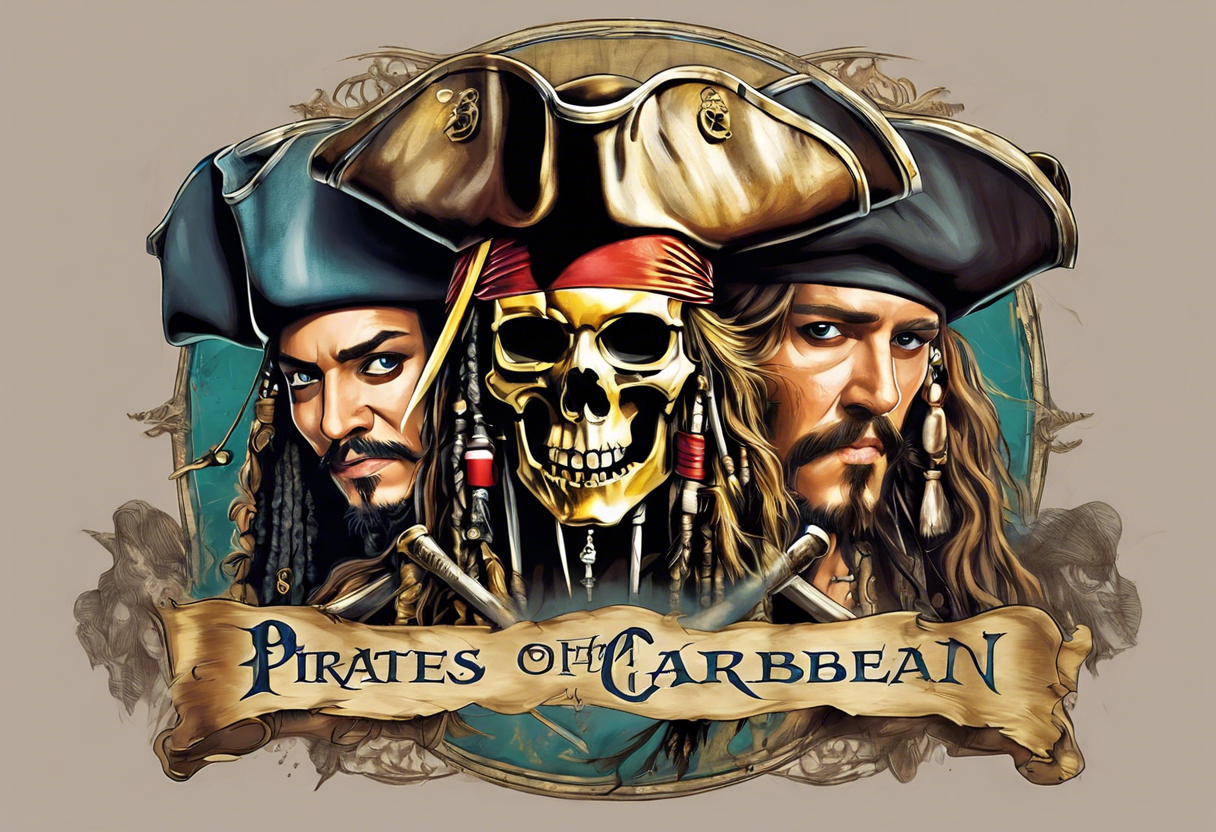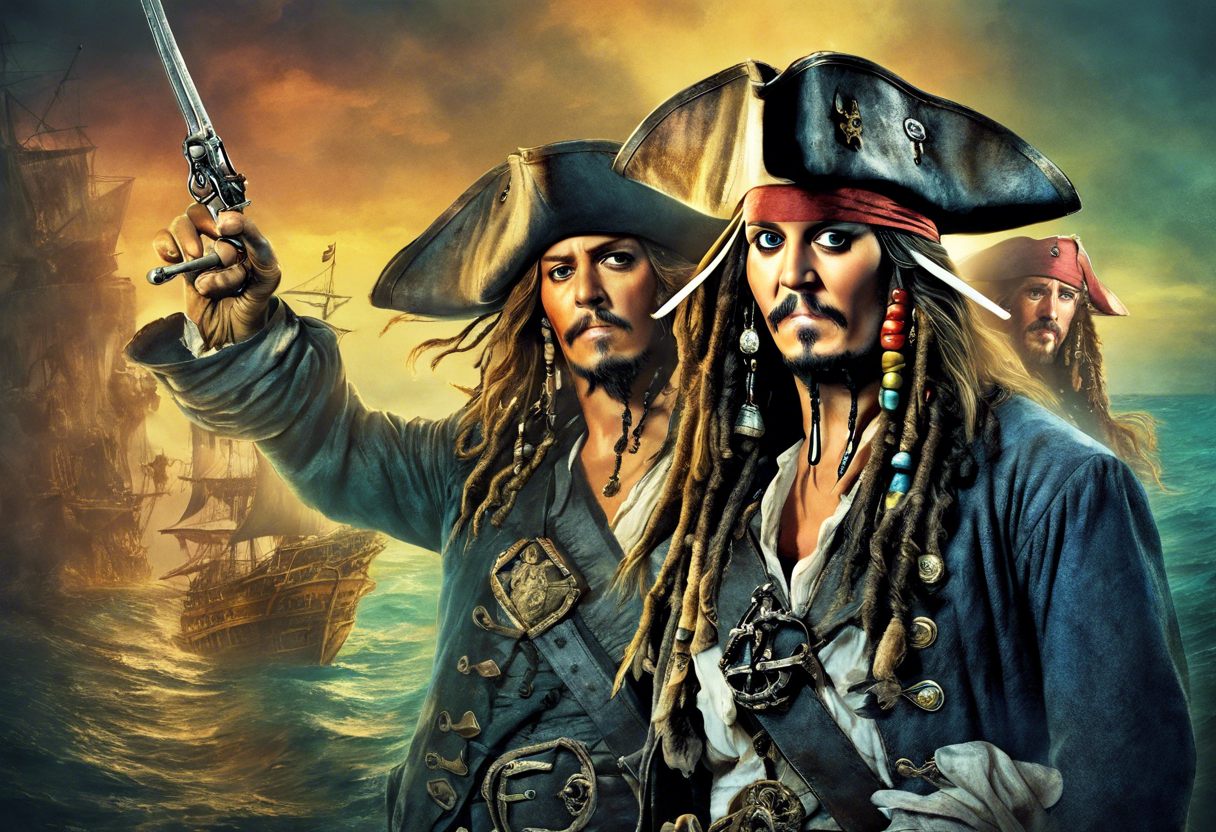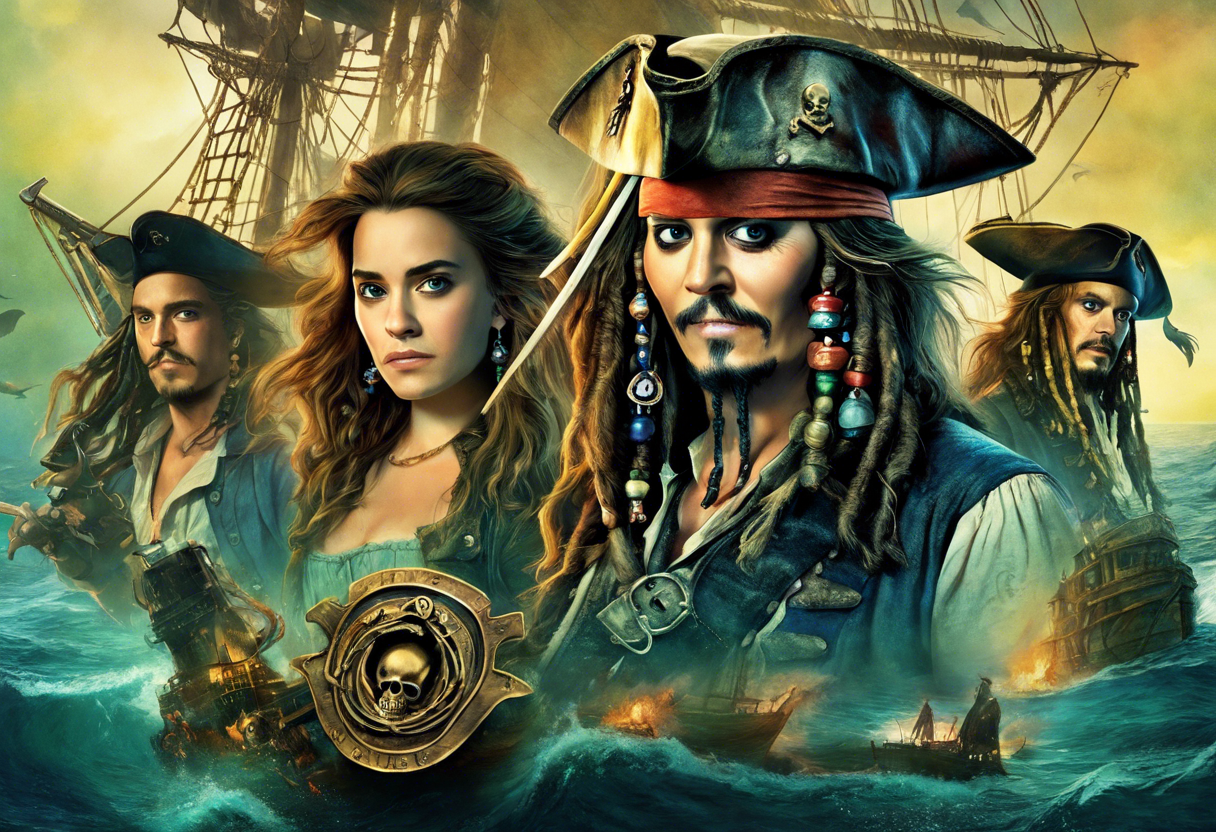Pirates of the Caribbean: Dead Men Tell No Tales
Introduction
"Pirates of the Caribbean: Dead Men Tell No Tales," released in 2017, is the fifth installment in the Pirates of the Caribbean franchise. Directed by Joachim Rønning and Espen Sandberg, the film is written by Jeff Nathanson, with Jerry Bruckheimer serving as the producer. This movie marks a significant return to the franchise’s roots, reintroducing beloved characters while introducing new ones, and exploring themes that have been central to the series.
The production of "Dead Men Tell No Tales" involved a complex process, including extensive location shooting and the use of advanced visual effects to bring the ghostly crew of the Silent Mary to life. The film features a star-studded cast, including Johnny Depp reprising his iconic role as Captain Jack Sparrow, along with Brenton Thwaites as Henry Turner, Kaya Scodelario as Carina Smyth, and Javier Bardem as the menacing Captain Armando Salazar.
Released on May 26, 2017, "Dead Men Tell No Tales" was anticipated by fans worldwide, given the franchise’s enduring popularity. The film sets itself apart within the genre by blending action, adventure, and fantasy elements with a rich narrative that delves into the personal journeys of its characters.
Plot Summary
The story of "Pirates of the Caribbean: Dead Men Tell No Tales" revolves around Captain Jack Sparrow’s quest to find the Trident of Poseidon. This powerful artifact is the key to breaking all curses on the sea, and Jack’s search is driven by his desire to defeat Captain Armando Salazar, a ghostly pirate hunter who seeks revenge against Jack for trapping him and his crew in the Devil’s Triangle decades ago.
The narrative begins with Henry Turner, the son of Will Turner and Elizabeth Swann, who is determined to break his father’s curse by finding the Trident. Henry crosses paths with Carina Smyth, a young astronomer wrongly accused of witchcraft, who possesses a diary that holds the clues to the Trident’s location. Jack Sparrow, meanwhile, is facing a spell of bad luck after trading his mystical compass for a drink, an act that inadvertently frees Salazar and his ghostly crew from the Devil’s Triangle.
As Salazar and his crew begin to terrorize the seas, killing pirates and destroying ships, Captain Hector Barbossa allies himself with Jack to find the Trident. Barbossa’s motivations are twofold: he wants to protect his pirate empire and also discover the treasure that the Trident might lead to. Along the way, it is revealed that Carina is Barbossa’s long-lost daughter, adding a personal layer to the adventure.
The group faces numerous challenges, including evading the Royal Navy and battling Salazar’s ghostly crew. They eventually reach the island where the Trident is hidden, only to find themselves in a perilous battle. Salazar captures Henry and uses him to retrieve the Trident, but Henry ultimately destroys it, breaking all curses on the sea and restoring Salazar and his crew to life. However, this act also causes the divided sea to close in, and Barbossa sacrifices himself to save the others from Salazar’s final attack [1][5].
Themes and Symbolism
"Pirates of the Caribbean: Dead Men Tell No Tales" explores several central themes that are characteristic of the franchise. One of the primary themes is the concept of identity and self-discovery. Henry Turner and Carina Smyth are both on quests to understand their pasts and their places in the world. Henry’s journey is about breaking his father’s curse and finding his own path, while Carina seeks to uncover the truth about her father and her own destiny. This theme is underscored by the directors’ emphasis on the characters’ vulnerability and their search for who they are [1][5].
Another significant theme is the power of family and legacy. The revelation that Carina is Barbossa’s daughter adds a deep emotional layer to the story, highlighting the complexities of family relationships and the sacrifices that parents make for their children. Barbossa’s ultimate sacrifice to save his daughter and her companions underscores the importance of family bonds and the legacy that one leaves behind.
The film also delves into the theme of revenge and redemption. Salazar’s relentless pursuit of Jack Sparrow is driven by a desire for revenge, but his story also touches on the idea of redemption. By the end of the film, Salazar and his crew are restored to life, symbolizing a form of redemption for their past actions [1][5].
Cultural Impact
"Pirates of the Caribbean: Dead Men Tell No Tales" had a significant cultural impact upon its release. The film was a major box office success, grossing over $794 million worldwide, making it one of the highest-grossing films of 2017. The movie’s success can be attributed to the enduring popularity of the franchise and the anticipation built up over the years.
The film’s influence on popular culture is evident in its references and adaptations in other media. The character of Captain Jack Sparrow, played by Johnny Depp, remains an iconic figure in popular culture, symbolizing the eccentric and charismatic pirate archetype. The film’s score, composed by Geoff Zanelli, also received praise for its blend of new and familiar themes from the franchise, contributing to the film’s emotional and action-packed moments [2].
However, the film also faced criticism for its handling of certain characters and plot elements. Some critics felt that the film relied too heavily on familiar tropes and did not introduce enough new elements to the franchise. Additionally, the film’s portrayal of female characters was criticized for lacking depth and nuance, a recurring issue in the franchise [3].
Critical Reception
The critical reception of "Pirates of the Caribbean: Dead Men Tell No Tales" was mixed. While the film was praised for its visual effects, action sequences, and the performances of its cast, particularly Javier Bardem as Captain Salazar, it was criticized for its convoluted plot and lack of originality.
Many critics felt that the film was overly reliant on the franchise’s past successes and did not bring enough new ideas to the table. The film’s pacing was also criticized, with some scenes feeling rushed and others feeling overly long. Despite these criticisms, the film still managed to entertain audiences and provided a satisfying conclusion to the story arcs of several characters [1][5].
Legacy
"Pirates of the Caribbean: Dead Men Tell No Tales" continues to hold a significant place in the cinematic history of the franchise. The film’s conclusion to the story of Henry Turner and Carina Smyth, as well as the final sacrifice of Captain Barbossa, provided a sense of closure for fans who had followed the series over the years.
The film’s influence can be seen in its contribution to the fantasy adventure genre, particularly in its use of complex characters and intricate plotlines. The franchise as a whole has inspired numerous other films and TV shows, and "Dead Men Tell No Tales" is no exception in its impact on popular culture.
In terms of its enduring relevance, "Pirates of the Caribbean: Dead Men Tell No Tales" remains a beloved installment in the franchise. The film’s themes of identity, family, and redemption continue to resonate with audiences, making it a memorable and engaging addition to the series.
References
- https://en.wikipedia.org/wiki/Pirates_of_the_Caribbean:_Dead_Men_Tell_No_Tales
- https://www.soundscapenotes.com/single-post/2017/05/28/pirates-of-the-caribbean-dead-men-tell-no-tales-2017
- https://reactormag.com/remember-when-the-pirates-of-the-caribbean-movies-were-fun/
- https://en.wikipedia.org/wiki/Pirates_of_the_Caribbean_(attraction)
- https://www.imdb.com/title/tt1790809/plotsummary/

